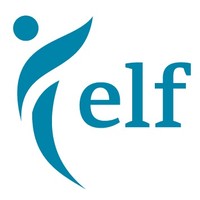![Portuguese Politics Explained with Ricardo Silvestre [PODCAST] Portuguese Politics Explained with Ricardo Silvestre [PODCAST]](https://4liberty.eu/phidroav/2025/07/RSpod3-1024x1024.png)
Portuguese Politics Explained with Ricardo Silvestre [PODCAST]
Why has the Portuguese politics become volatile and fragmented? What should we know about the Portuguese politicians and their conflicts of interest? How to address the problem of the Chega party and the rise of populism in Portugal? And what is the current status of the relations between Portugal and the EU? Leszek Jazdzewski (Fundacja Liberte!) talks with Ricardo Silvestre, an author and a political scientist who is an Associate Fellow at the European Liberal Forum (ELF).




![Insights on the Iranian Regime and Society with Walter Posch [PODCAST] Insights on the Iranian Regime and Society with Walter Posch [PODCAST]](https://4liberty.eu/phidroav/2025/06/Liberal-Europe-Podcast-Walter-Posch-1024x1024.png)
![War Against Human Rights with Oleksandra Matviichuk [PODCAST] War Against Human Rights with Oleksandra Matviichuk [PODCAST]](https://4liberty.eu/phidroav/2025/06/Liberal-Europe-Podcast-2024-9-1024x1024.png)
![Germany at Crossroads with Klaus Bachmann [PODCAST] Germany at Crossroads with Klaus Bachmann [PODCAST]](https://4liberty.eu/phidroav/2025/05/Liberal-Europe-Podcast-2024-9-1024x1024.png)
![Who Will Win the Polish Presidential Election? with Adam Jasser [PODCAST] Who Will Win the Polish Presidential Election? with Adam Jasser [PODCAST]](https://4liberty.eu/phidroav/2025/05/Liberal-Europe-Podcast-2024-7-1024x1024.png)
![Mass Student Protests in Serbia with Ivan Vejvoda [PODCAST] Mass Student Protests in Serbia with Ivan Vejvoda [PODCAST]](https://4liberty.eu/phidroav/2025/05/LEP_Ivan-Vejvoda_square-1024x1024.png)
![Presidential Elections in Romania with Georgiana Gheorghe [PODCAST] Presidential Elections in Romania with Georgiana Gheorghe [PODCAST]](https://4liberty.eu/phidroav/2025/04/LEP_Georgiana-Gheorghe_square-1024x1024.png)
![Defending Europe Without the United States with Guntram B. Wolff [PODCAST] Defending Europe Without the United States with Guntram B. Wolff [PODCAST]](https://4liberty.eu/phidroav/2025/04/LEP_Guntram-B.-Wolff_square-1024x1024.png)
![Transatlantic Rift with Matthew Kaminski [PODCAST] Transatlantic Rift with Matthew Kaminski [PODCAST]](https://4liberty.eu/phidroav/2025/03/LEP_Matthew-Kaminski-1024x1024.png)
![Trump’s Impact on Europe and Elections in Poland with Andrzej Bobinski [PODCAST] Trump’s Impact on Europe and Elections in Poland with Andrzej Bobinski [PODCAST]](https://4liberty.eu/phidroav/2025/03/LEP_Andrzej-Bobinski_square-1024x1024.png)